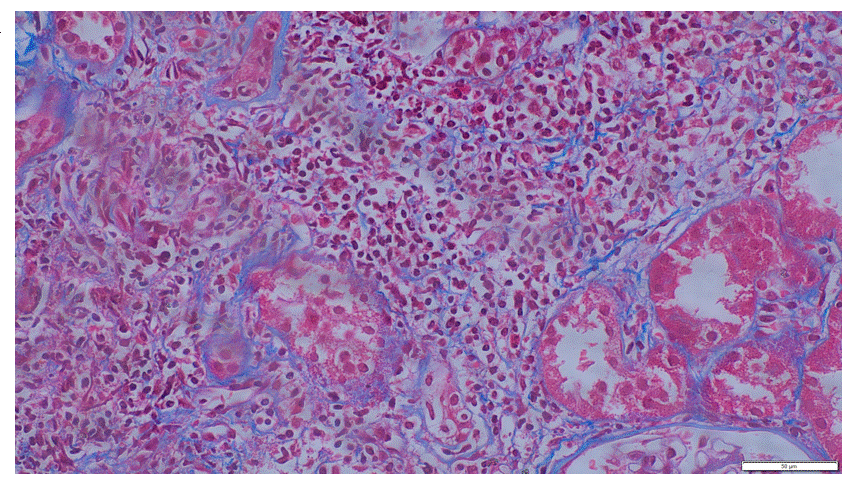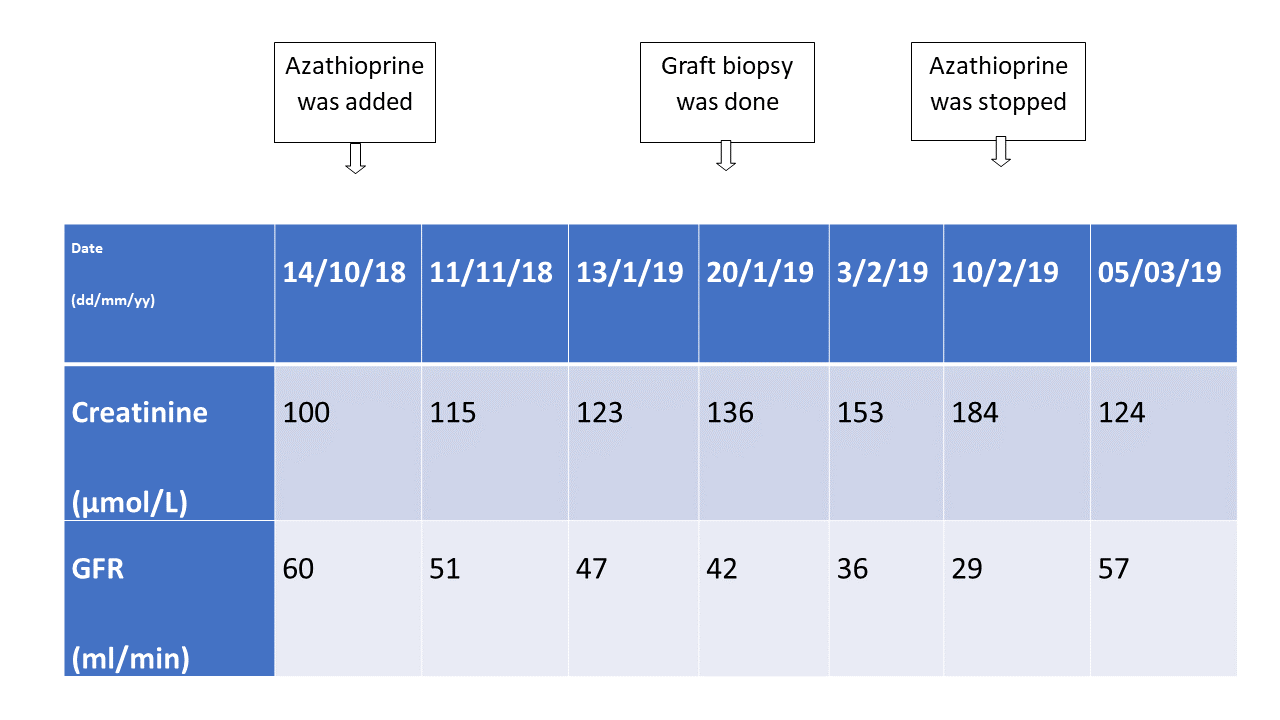Tubulo-Interstitial Nephritis in Graft Kidney Transplant Post Azathioprine Introduction
Issa Al Salmi1, Salima Al-Alawi1.
1Renal Medicine, the Royal Hospital, Muscat, Oman
Kidney Transplant is the gold standard of care for end-stage kidney disease (ESKD). Immunosuppression has a central role to maintain the graft function and its survival. Despite newer agents, still, old agents such as azathioprine are still used by many clinicians at various places worldwide. However, hypersensitivity reactions, such as tubulointerstitial nephritis, can occur after starting these medications. There can be many causes of tubulointerstitial nephritis; drugs, infections and autoimmune diseases e.g.: sarcoidosis, systemic lupus erythematosus and Sjogren’s syndrome.
We report a case of acute interstitial nephritis after the introduction of azathioprine in a kidney transplant recipient.
A young female with a living related kidney transplant on triple immunosuppression medication consisting of prednisolone, tacrolimus and mycophenolate mofetil, expressed her desire to conceive eight months after her wedding. Accordingly, mycophenolate mofetil was replaced by azathioprine. In subsequent visits, it was observed that her graft kidney function was deteriorating progressively. All possible causes which could contribute to graft function deterioration were evaluated and a graft biopsy was performed. The biopsy showed moderate interstitial inflammatory infiltrate rich in eosinophils with no evidence of cellular or antibody-mediated rejection.

It was successfully treated by stopping azathioprine and starting high dose oral prednisolone.

Deterioration of kidney function in kidney transplant patients, who are put on azathioprine, should raise the suspicion of tubulointerstitial nephritis as a differential diagnosis. To the best of our knowledge, this is the first report of a kidney transplant recipient in whom graft kidney function deteriorated upon introduction of azathioprine. Kidney biopsy revealed moderate interstitial inflammatory infiltrate rich in eosinophils with no evidence of cellular or antibody-mediated rejection. The graft kidney function improved after the cessation of azathioprine and increasing the dose of steroids.
There are no comments yet...